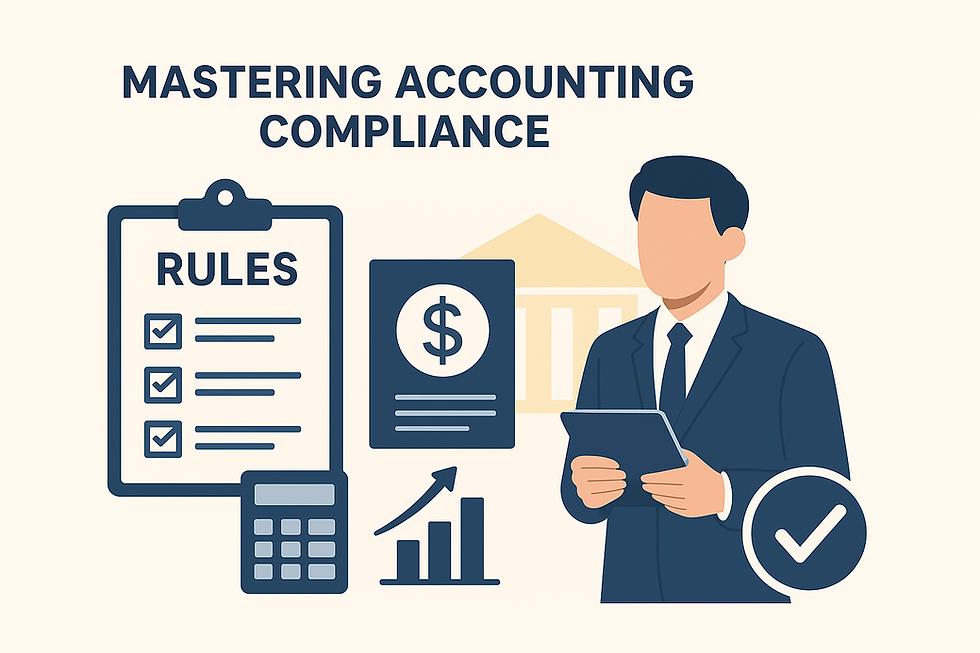One Person Company (OPC)vs Private Limited (Pvt Ltd) Company: Which is Right for Your Business?
- kanumillinagakarth
- Jul 15, 2025
- 2 min read
Updated: Jul 16, 2025

When starting a business in India, one of the first decisions to make is choosing the right type of legal structure. Two of the most popular options are the One Person Company (OPC) and the Private Limited Company (Pvt Ltd). Both offer limited liability and separate legal status, but they differ in terms of ownership, compliance, fundraising, and scalability.
This blog explores the key differences between an OPC and a Private Limited Company to help new business owners make an informed choice.
Features of OPC & Pvt Ltd:
1. Definition and Legal Structure:
One Person Company (OPC):
OPC’s are governed under Companies Act, 2013, Designed for a single entrepreneur who wants to operate with limited liability, Allows only one shareholder and one nominee.
Private Limited Company (Pvt Ltd):
A corporate structure that requires at least two shareholders and two directors, widely used by startups, small businesses, and companies planning to raise capital or expand.
2. Ownership and Management:
Feature | OPC | Private Limited Company |
Shareholders | Only 1 (with a nominee) | Minimum 2, Maximum 200 |
Directors | Minimum 1 | Minimum 2, Maximum 15 |
Decision Making | Single-person authority | Decisions made by board or members |
Suitable For | Solopreneurs, freelancers | Startups, growing businesses |
3. Compliance and Regulatory Requirements
OPC:
Lower compliance requirements.
Only two board meetings per year.
Annual filings with the Registrar of Companies (ROC) are mandatory.
Audit is required regardless of turnover.
Pvt Ltd
Higher compliance obligations.
Minimum four board meetings per year.
Mandatory statutory audit regardless of turnover.
Must hold Annual General Meeting (AGM).
4. Funding and Investment Options
OPC’s:
Cannot raise Equity funding from angel investors or venture capitalists, Suitable for self funding business, can raise funds from debentures, and loans.
Pvt Ltd Companies:
Can raise funds by issuing Equity, Debentures, and CCPS etc, Ideal for start-up’s seeking angel or venture capital investments.
5. Scalability and Growth:
OPC’s:
Suitable for small-scale operations or solo ventures.
Limited in terms of adding shareholders or partners.
Mandatory to convert into a Private Limited Company if:
Turnover exceeds ₹2 crore, or
Paid-up capital exceeds ₹50 lakh.
Pvt Ltd Companie’s:
Offers greater flexibility to scale operations.
Can add investors, directors, and shareholders.
Widely recognized and preferred by investors.
Blog Summary:
Feature | OPC | Private Limited Company |
Shareholders | 1 | 2–200 |
Directors | 1 | 2–15 |
Funding Options | Debt instruments only | Debt + Equity + Preference Shares |
Compliance | Low | Moderate to High |
Suitable For | Solo businesses, professionals | Startups, scalable businesses |
Scalability | Limited | High |
Conversion | Can convert to Pvt Ltd | Can convert to Public Limited |
Conclusion:
Starting a business in India begins with choosing the right structure that aligns with your business goals and operational needs. Whether it's a One Person Company or a Private Limited Company, each structure offers its own advantages and limitations.
With multiple options available for setting up a business in India, it’s crucial to assess factors like ownership, scalability, compliance, and future funding plans before making a decision.
If you're still unsure about which structure fits your business best, reach out to ProLead. We help entrepreneurs and business owners make informed choices—even in complex matters like taxation, regulatory compliance, and growth planning.




Comments